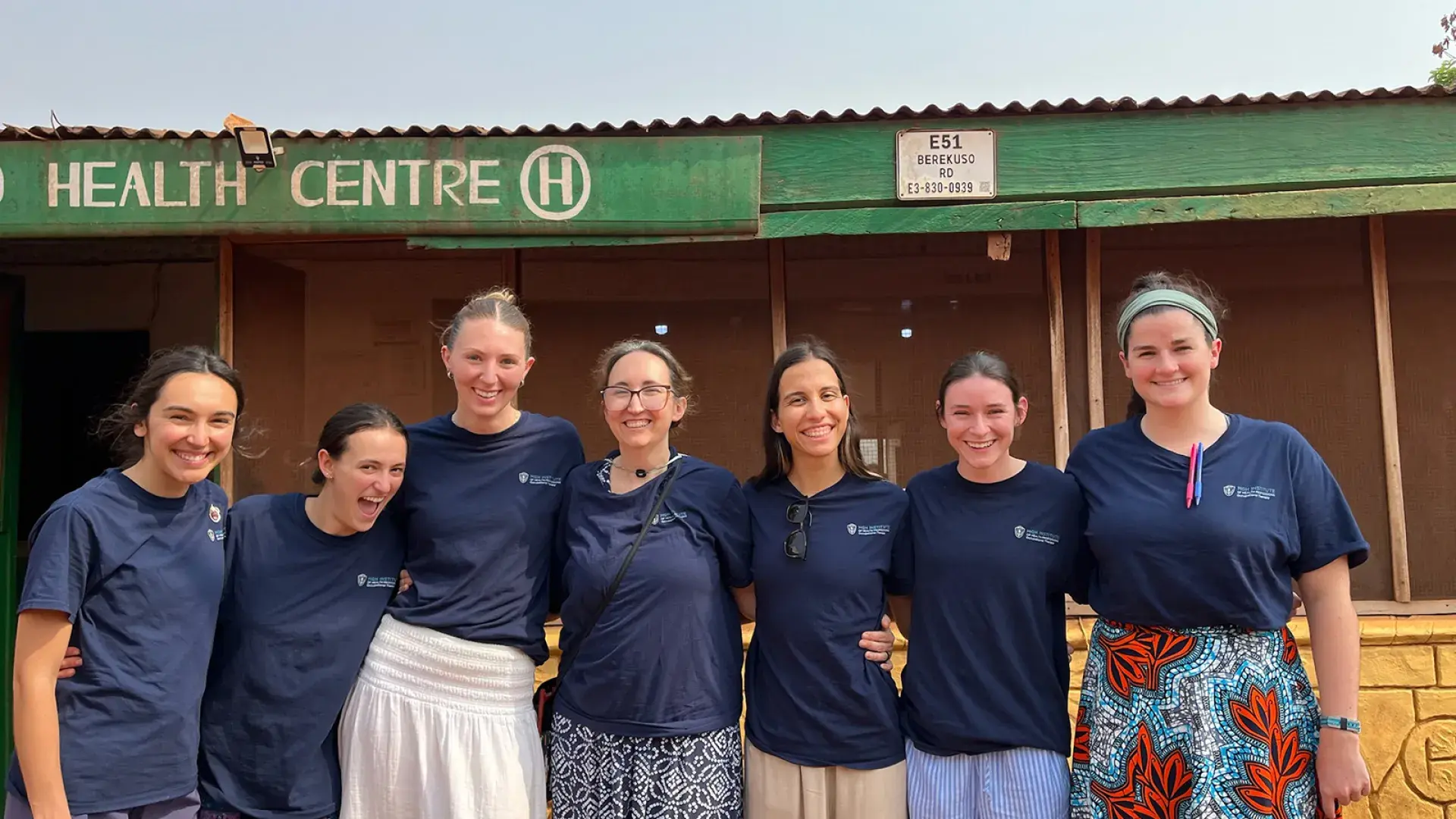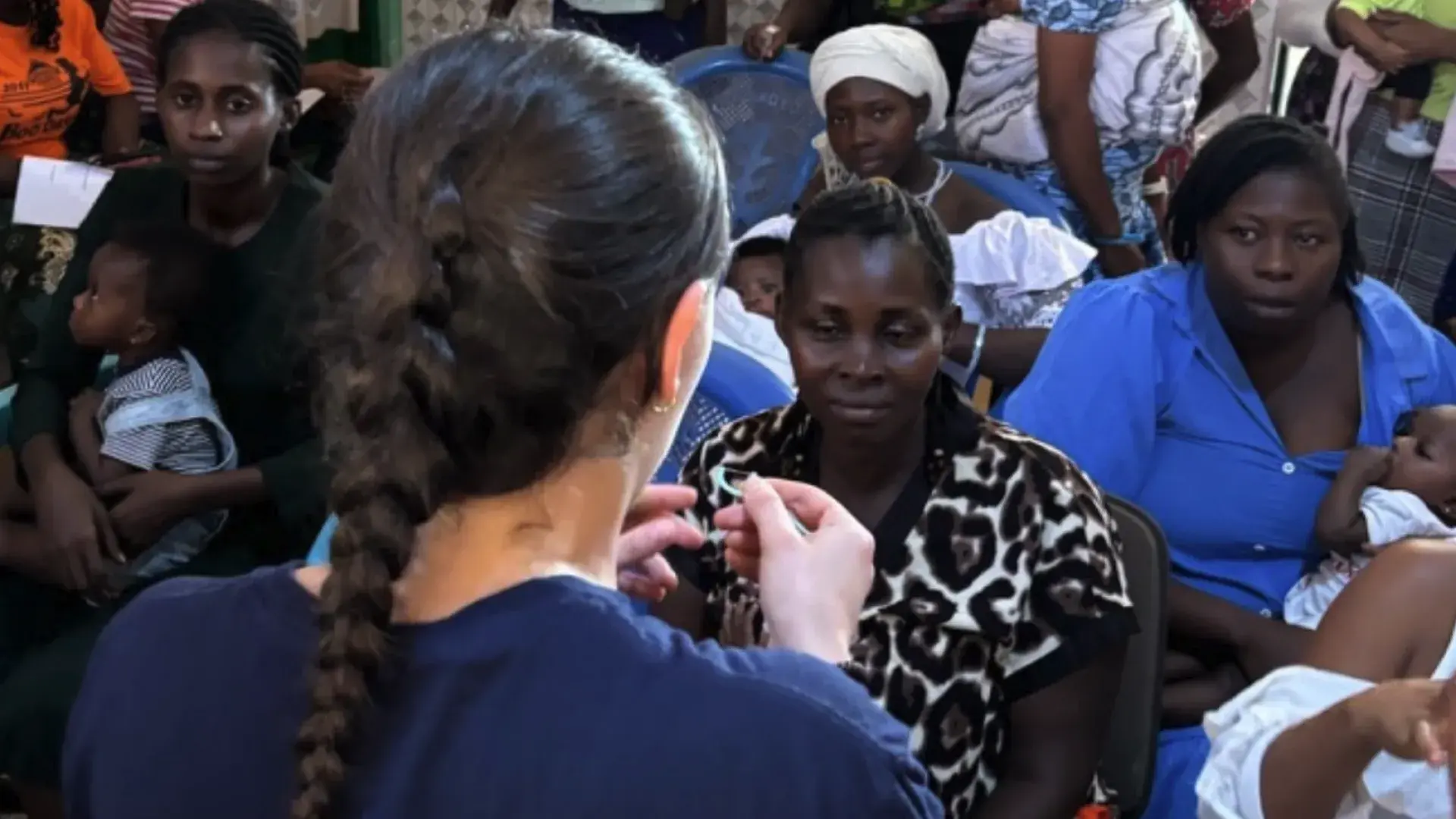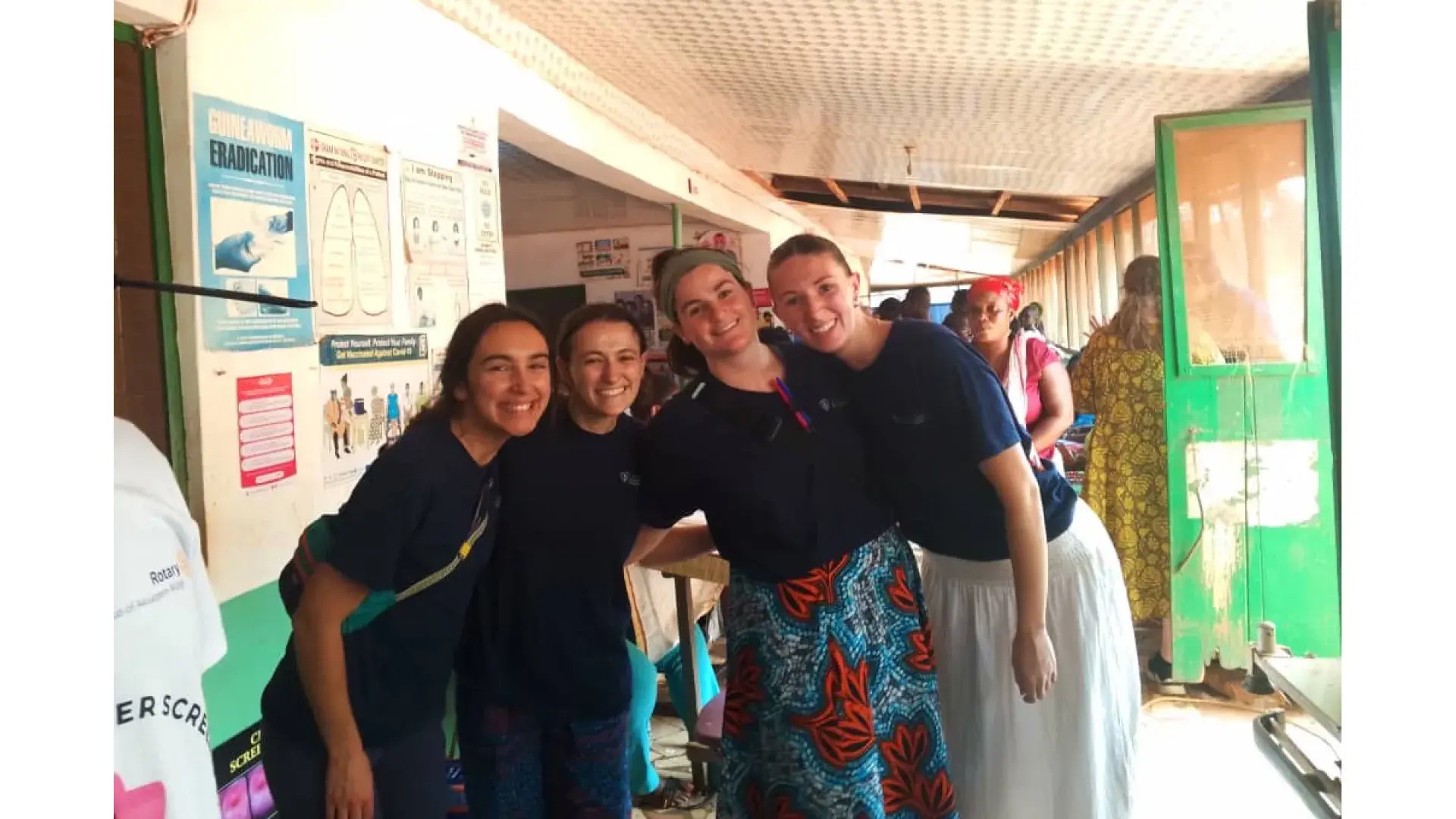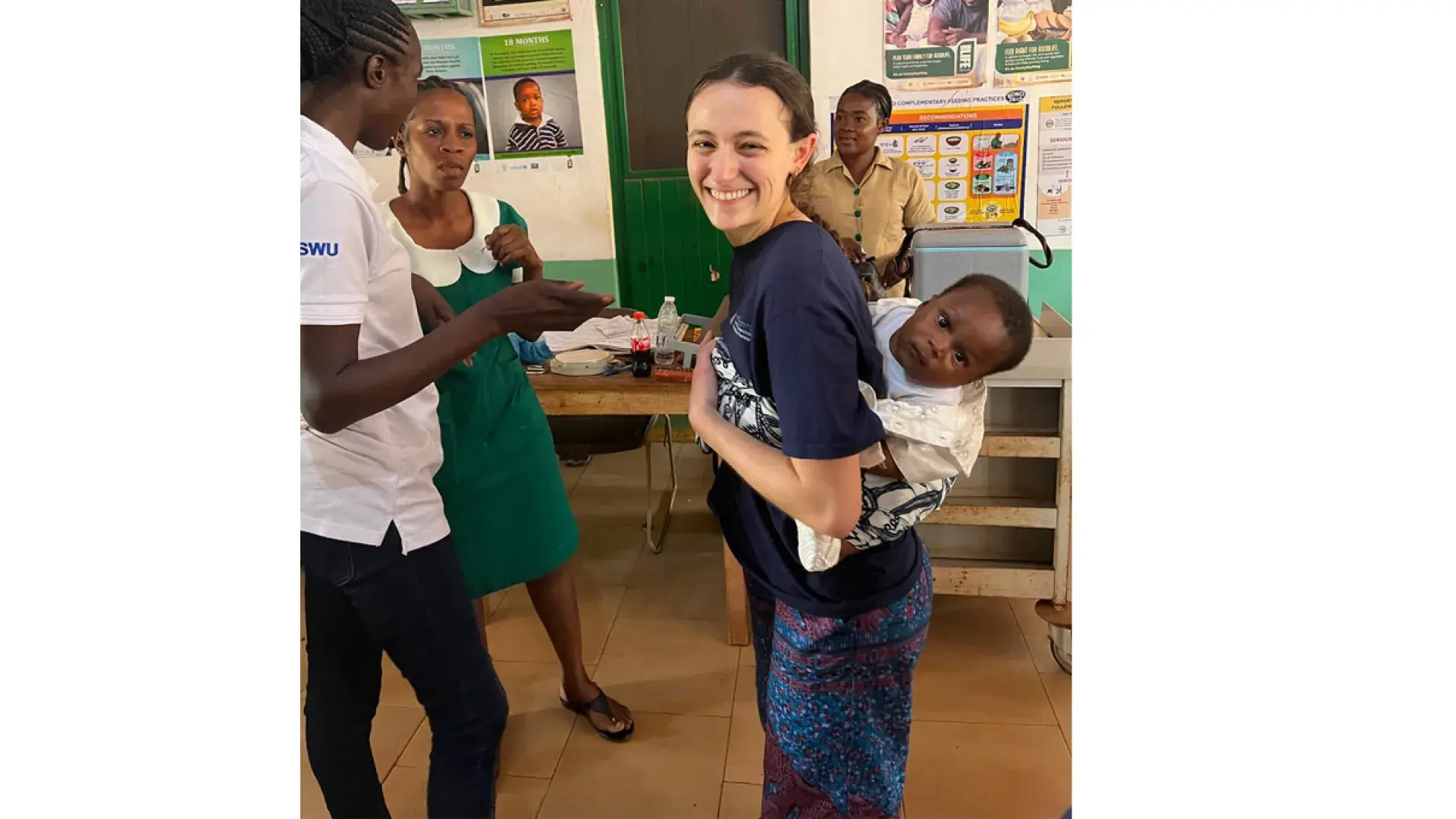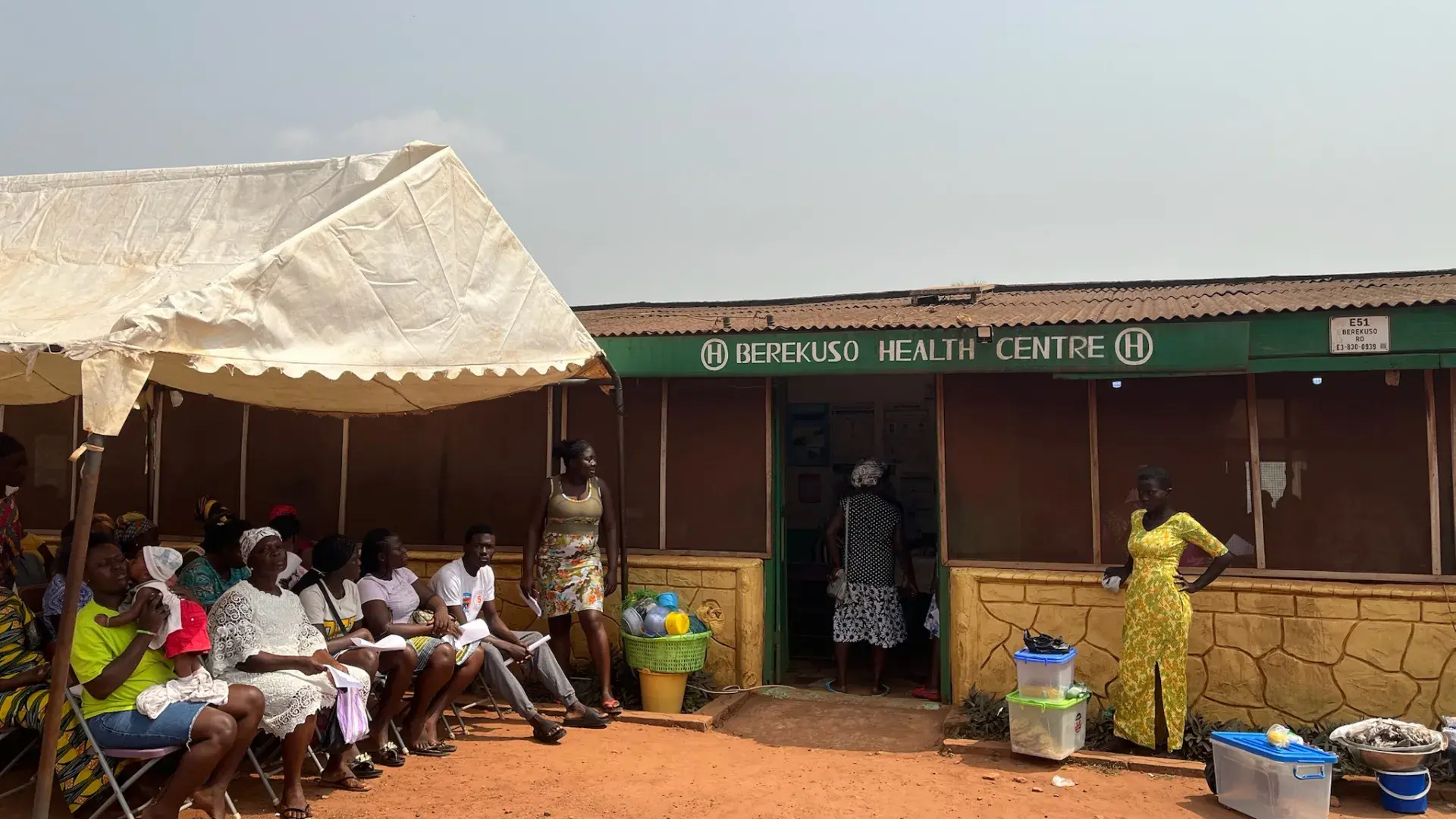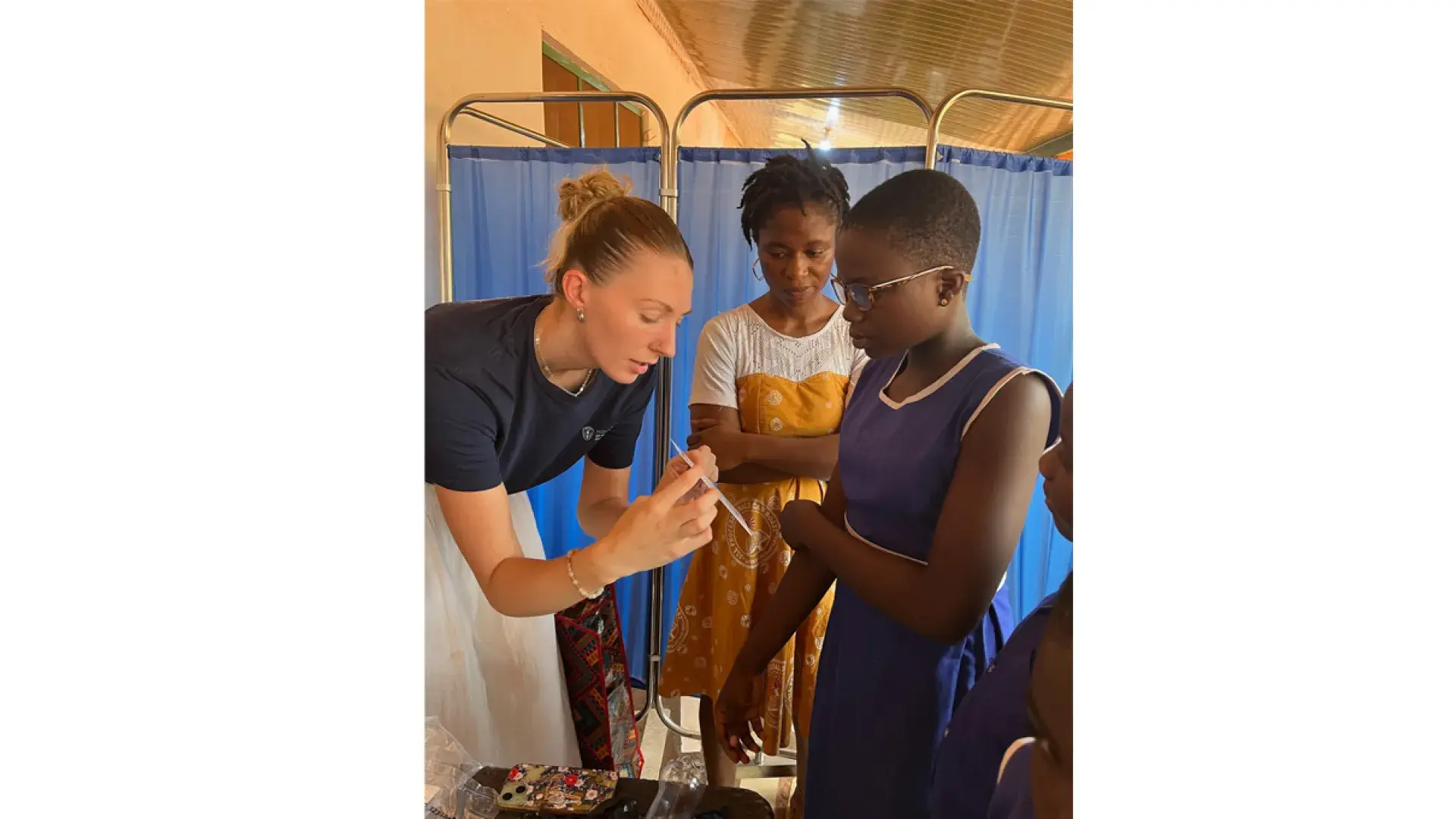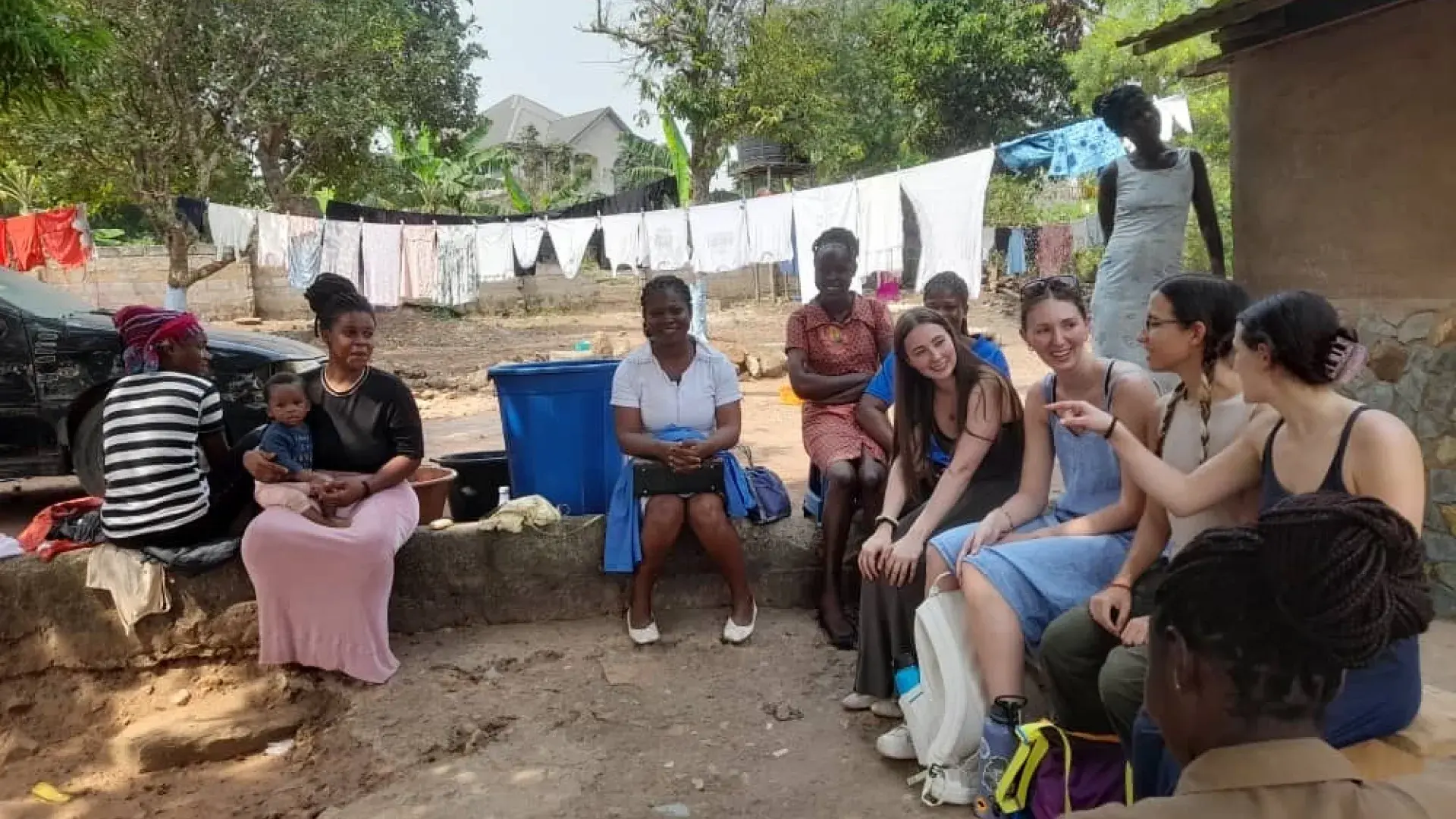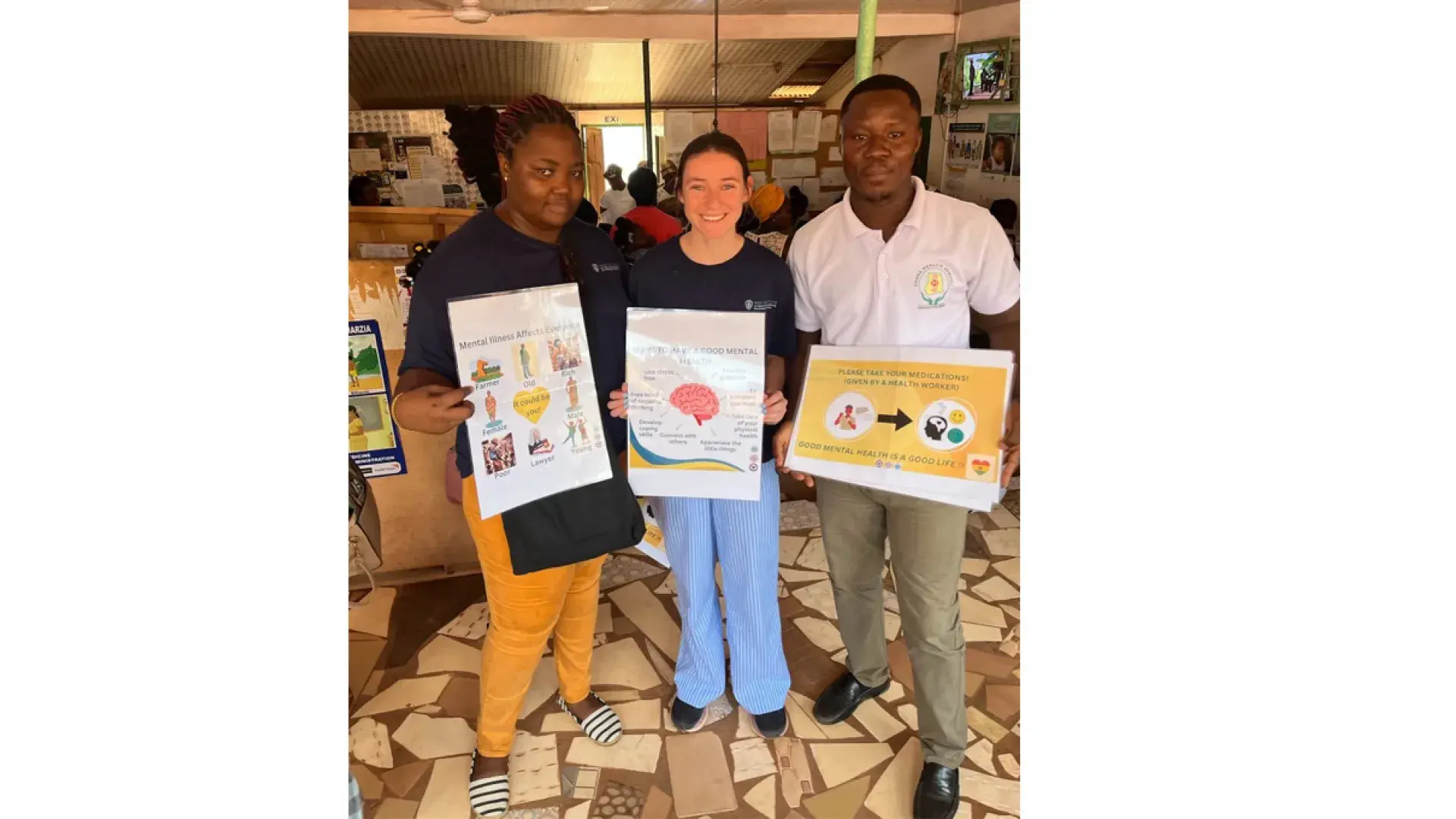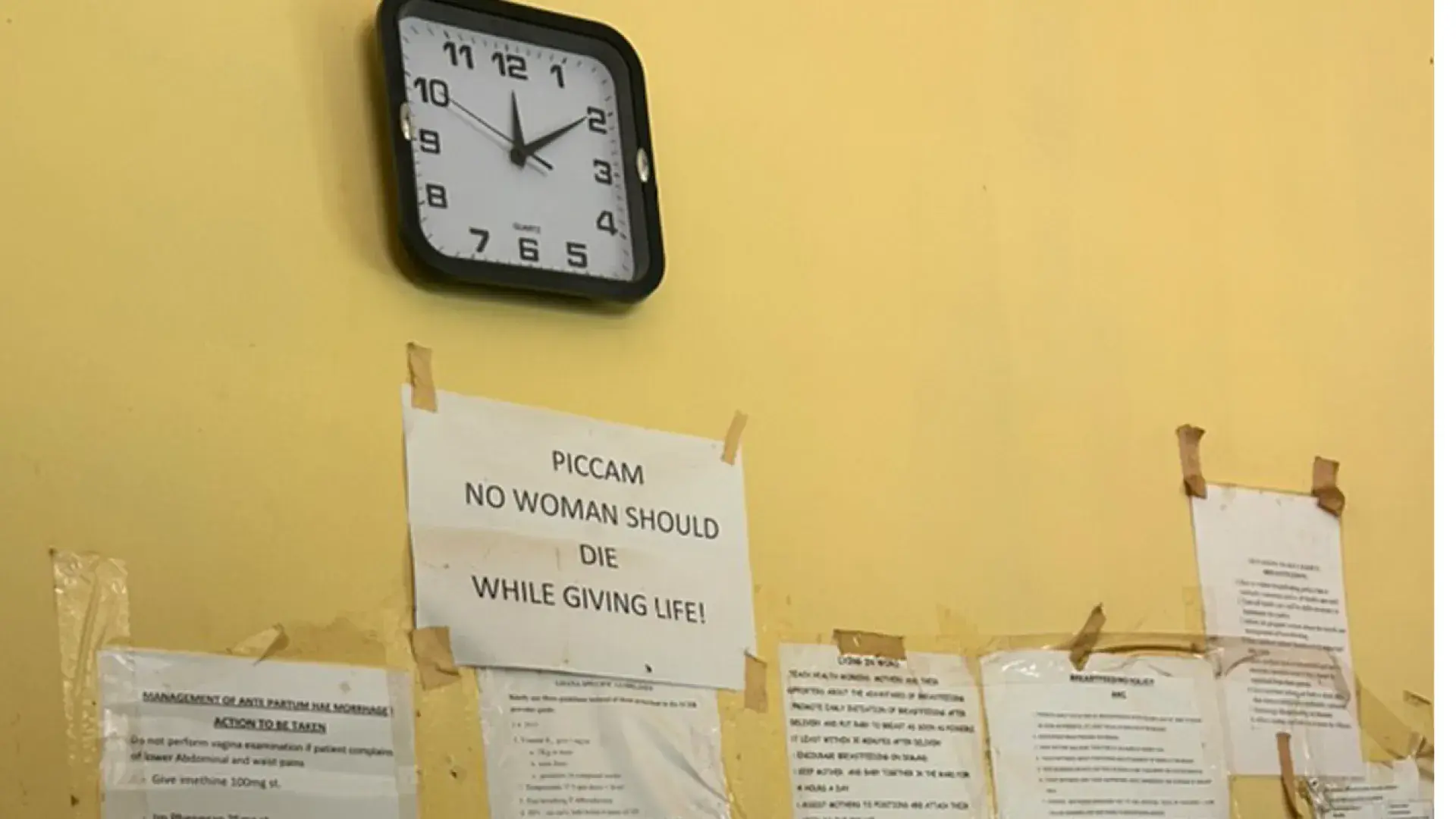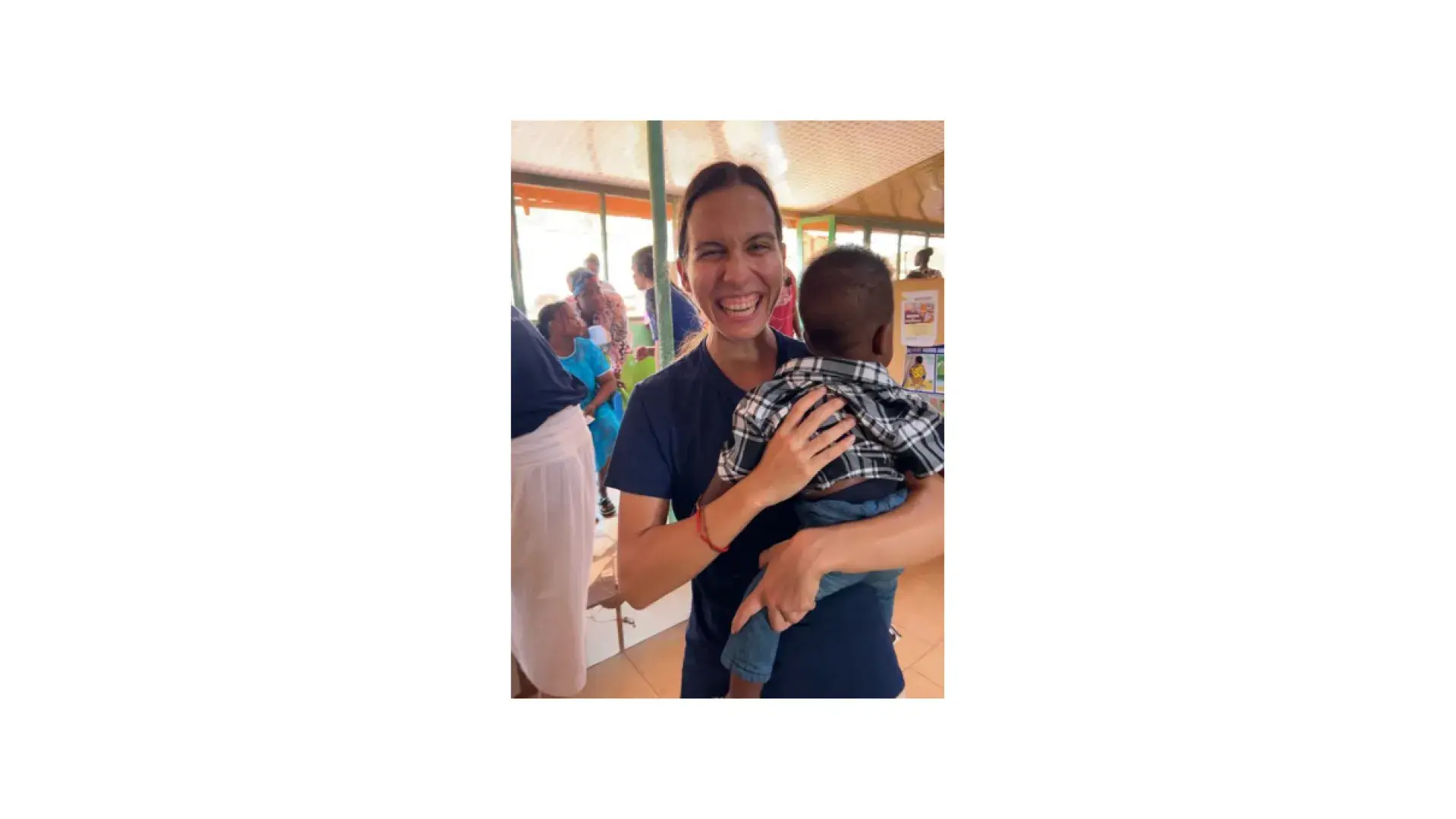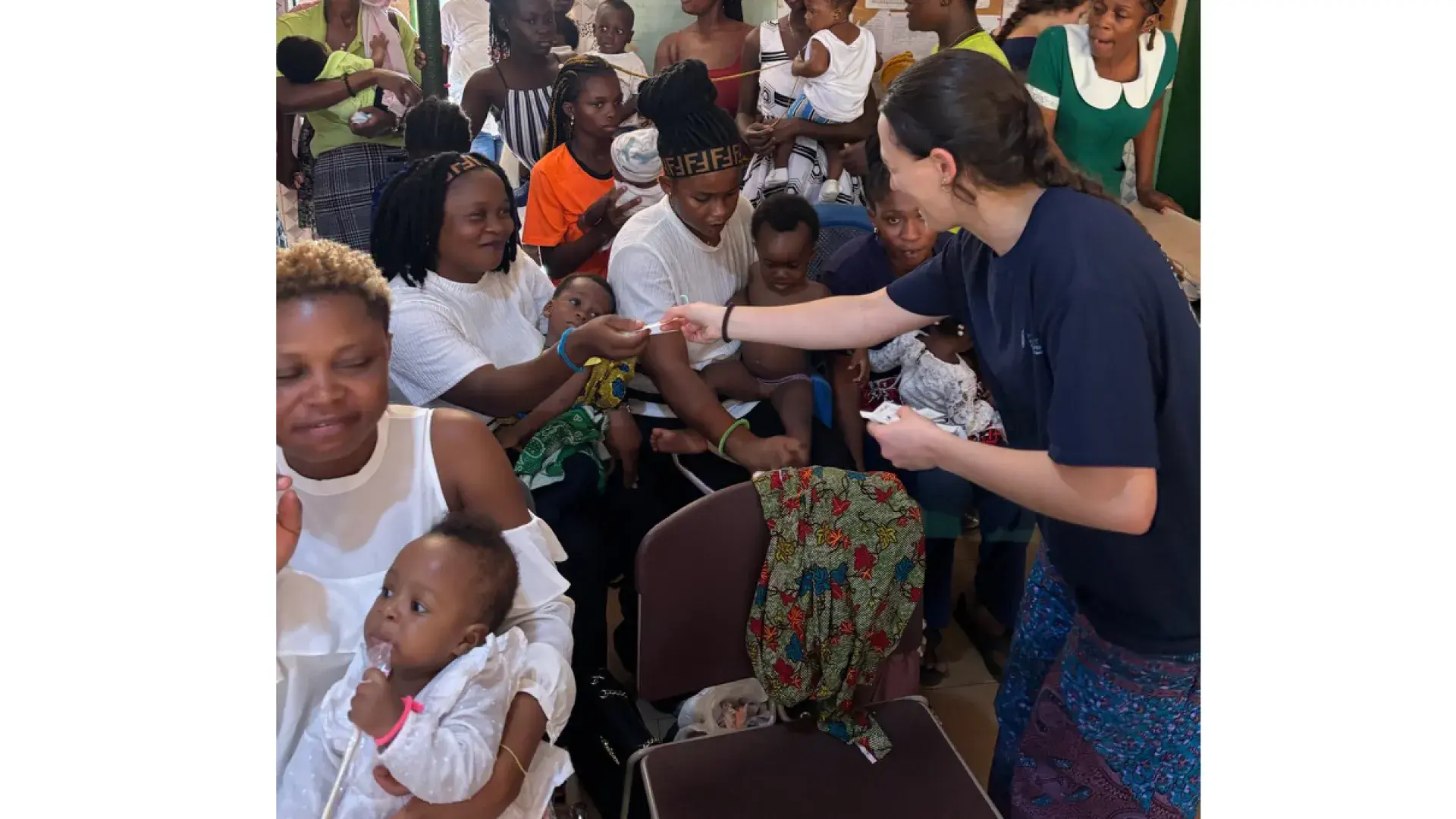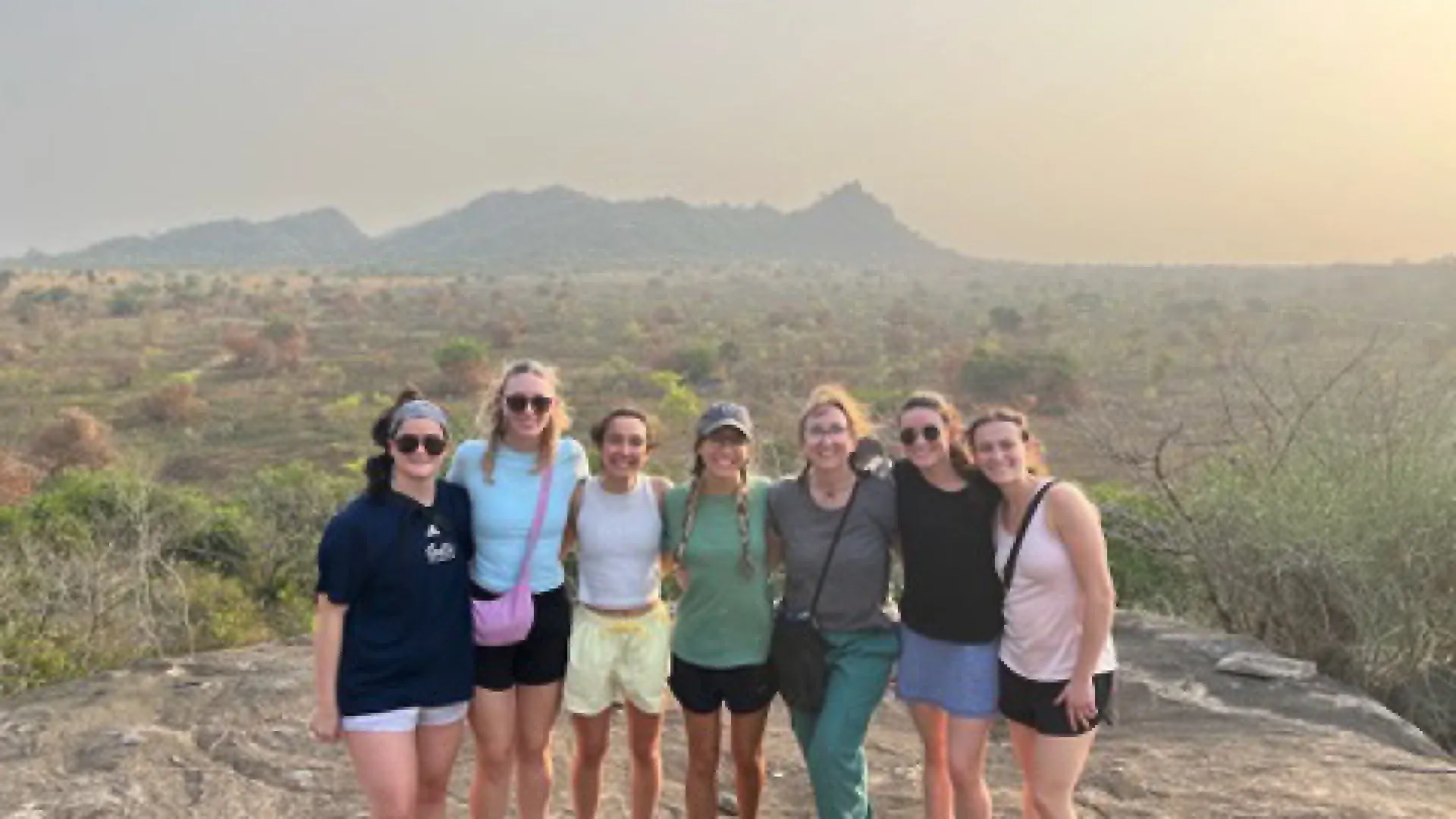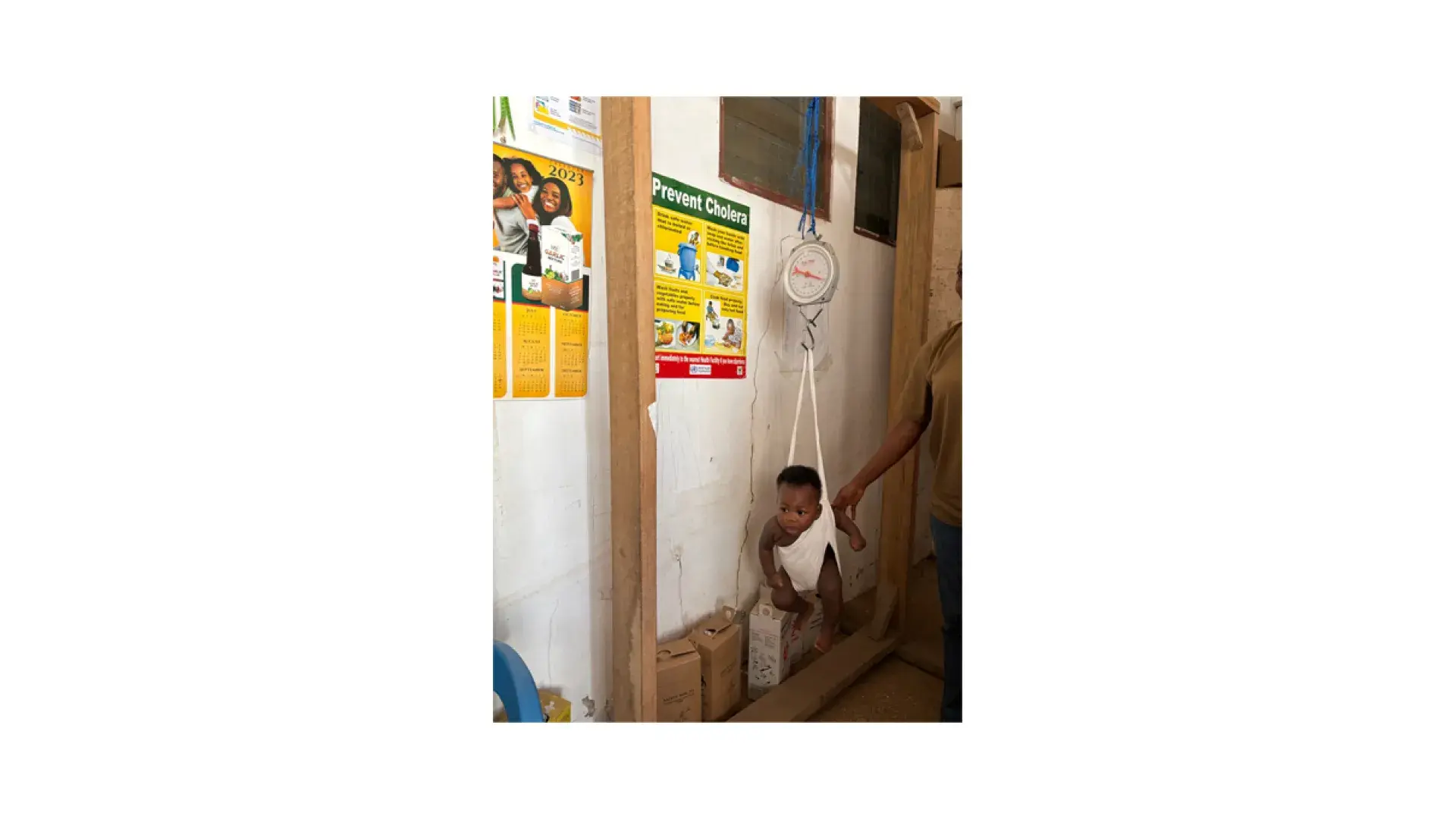
Students help people in Ghana and bring back interprofessional and cultural knowledge for the future
When Elspeth Olney and Hope Hilsenrath visited Africa before becoming MGH Institute students, they each knew they wanted to return one day. Olney had traveled to Kenya in 2016 and had encountered a group of medical students working in the community while Hilsenrath had visited Ghana on a 2018 service trip to teach in an elementary school.
“I remember thinking that was something I could do in the future once I was in graduate school,” said Olney, a second-year, entry level occupational therapy student.
“I loved it,” her classmate Hilsenrath recounted. “It’s such a beautiful country with such beautiful people so I have always wanted to go back and do something more specifically healthcare related.”
They both got the chance to go back earlier this month when they joined four of their fellow OT students, Michaella Israel, Erin Macdevette, Isabella Moreno, and Caitlin Prescott, as well as physician assistant and pharmacy students from other Massachusetts schools on a 10-day trip to the West African nation. Led by Assistant Professor Colleen Muse, who teaches the six students in a global immersion elective, and four faculty members from the other schools, the trip is part of an interprofessional Ghana Collaborative that has been visiting the region for four years.
This year, the students were divided between four health centers in different locations. Each student chose one subject area — chronic disease focused on diabetes; infection control focused on scabies eradication; youth mental health; and maternal health — and worked with an interprofessional team at each site.
“We’re really there to meet the unique needs of the health centers and learn what they are doing,” explained Muse. “What are the needs they have? What’s working? What’s not working and how can we support them by using our shared knowledge and cultural humility to support their needs sustainably?”
Interprofessional Teams in Practice
The staff at the health centers are led by physician assistants and staffed with community health workers, and nurses.
“Occupational therapists are spread thin in Ghana, but their services are valuable so having OTs from the U.S. added a needed lens in these centers that did not have OTs on hand,” said Muse.
In addition to showing the contributions that OTs can make to patients and health center staff, there was also an opportunity to highlight the OT’s value to the PA and pharmacy students they worked with while in Ghana.
“This was a unique opportunity to learn more about what occupational therapy looks like abroad,” said Macdevette. “The interprofessional aspect intrigued me because you not only see where we fit in and show the unique lens of occupational therapists, but you can educate some of our American colleagues.”
